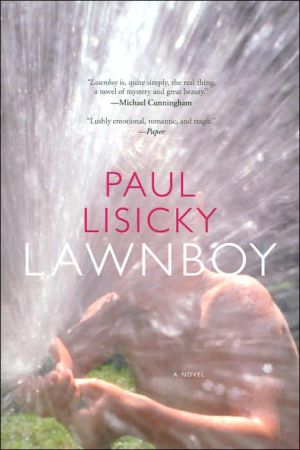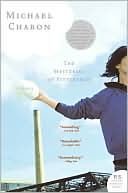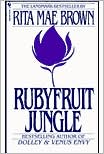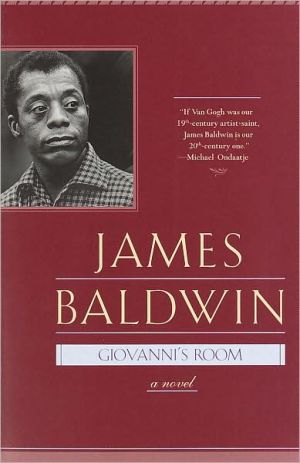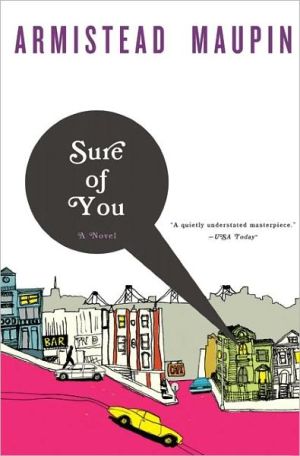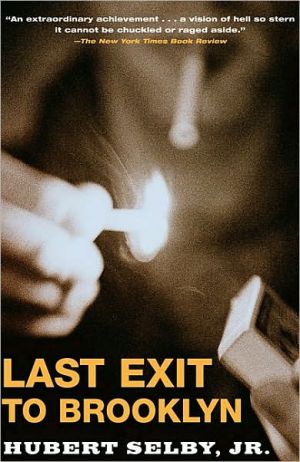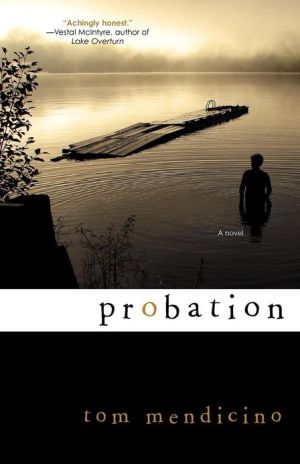Lawnboy
"Lawnboy is, quite simply, the real thing, a novel of mystery and great beauty." —Michael Cunningham\ They all thought I was good-natured, upright and responsible, generous, affectionate, and kind, and of course I could be those things, but there was much more to me than that, a side that unnerved even myself, and this side included William.\ Seventeen-year-old Evan's adventure begins with mowing a neighbor's lawn, a summer job that leads him into an unpredictable world of desire and...
Search in google:
The adventure of seventeen-year-old Evan's life begins with mowing a neighbor's lawn, an ordinary chore that launches him into a world of desire, confusion, and betrayal. Rejected by his parents, struggling to make contact with his lost brother, he learns the nature of exile. Lawnboy is about the possibility of finding connection in a world of broken relationships and decaying motels, failed housing developments sinking back into the swamps—the urban, artificial landscape of South Florida, as lush and troubling as Evan's imagination.Bret Anthony JohnstonEvan Sarshik, the seventeen-year-old, plant-loving narrator of Lisicky's first novel, agrees to mow his neighbor's lawn, and with that seemingly innocent chore the confused young man finds himself thrust into a life of decadence and disillusionment. Evan flees his childhood home to live with William, his forty-something neighbor with the beautiful lawn, then after the relationship fizzles, he begins searching for Peter, his missing older brother. Throughout his odyssey to find his own identity, Evan's imagination grows darker while he endures a string of fragmented relationships. Lisicky's prose shines, at times hilarious, at others entrenched in sorrow and longing, but always gorgeous to read. Though many of the characters fail to rise beyond the stereotypical, Evan's strong, exhilarating voice delivers the cast from cliche. The novel's conclusion is tight, if slightly too generous in its attempt to tidy up loose ends, but the reconciliations between the characters are moving and earned, graced with compassion and vitality.
\ \ \ \ Chapter One\ \ \ There were things nobody knew about me. They didn't know about my old train set in my bedroom, complete with Cape Cods, hotels, signal crossings, and papier-mâché palms, a set that I tinkered with until the ninth grade, then smashed—to my uttermost sorrow—after a fight with my father. They didn't know I could recite a handful of psalms —the 13th, the 23rd, the 42nd, and the 53rd—completely by heart. They didn't know about my deep interest in Greek myth, my faith in the shifting weather, my fascination with Saturn and the outer planets. They didn't know that I spent hours at a time inside a concrete pipe, a cool, cramped cylinder in the middle of a field, whenever I needed to get away. They didn't know about the morning in my thirteenth year when out of sheer boredom, I stitched my fingertips together with needle and thread, making an intricate basket of my hand and giving myself a tremendous infection. They all thought I was good-natured, upright and responsible, generous, affectionate, and kind, and of course I could be those things, but there was much more to me than that, a side that unnerved even myself, and this side included William.\ William. William the pigeon-toed, William the conqueror. His name, though banal, still conjures up an otherworldly thing, not a being of flesh and blood. For a while I kept him hidden from everyone—my mother, my father, Peter. It even took me months to tell my best friend Jane about him, though she thought she knew me. Well, she didn't.\ I liked to keep him that way: my secret path, my own private joy.\ I was mowing my parents' lawn. He was standing in our yard between the joewood and the carambola, mopping his tanned forehead with a blue rag. He was watching me, hard, and I made an effort not to notice. He'd been around forever; he had to be almost as old as my parents: forty, forty-two. I'd never even given him a thought. I only knew that he worked the camera for Channel 7 News, had a gentle greeting for my folks whenever he walked his Dobermans, and had the most profound and beautiful travelers tree I'd ever seen (like me, he loved plants). That was it. He meant absolutely nothing to me, until he stepped forward, then I started noticing: jaw, eyes, hair, smell, hands, feet, mouth. There was a kind of buzz about him, a field of hissing electricity that jerked with my ions and electrons. I felt myself getting hard. I thought: now you've really gotten yourself into trouble.\ "Lawnboy," he said, mocking me. "Lawnboy, Lawnboy."\ I pulled back on the lever. The motor silenced. "Is there a problem?" I said, with some irritation.\ The hush overwhelmed. Above, dry palm fronds clattered in the heat.\ "Can I help you?"\ He nodded, shyly. He tucked in his shirt, a striped Haitian thing patterned with yellow parrots. "My lawn mower's broken. My place is a mess. Would you be interested in cutting my lawn?"\ My expression dulled. I reacted as if he'd been asking to tap my spine.\ "I'll give you twenty bucks. Twenty bucks, an hour a week. No weeding or mulching."\ I frowned. I felt simple, my tongue swelling fatly in my mouth. Befuddled. I glanced up at the shocked treetops and saw a sun shivering in a glazed sky. When I looked back at him, his eyes, blue with sprinklings of gold, were watching mine. I thought I detected some fear in them.\ "I have to ask my parents," I announced.\ I loped through the side door. I crouched in the living room, pressed my nose right down into the quarry tile so I could almost breathe in the dust. I was seventeen years old. Of course my parents didn't need to know. If anything, they'd be thrilled that I'd finally stopped moping around the house, dreading the resumption of school. I stood, watching the second hand of the clock make three complete rotations. I peered through the slats of the Bermuda shutter. He was shifting his weight from foot to foot. I reached into my pants, gave myself a firm and brutal yank. When I looked down, I noticed the trembling of my hands.\ "What did they say?" William called out to me.\ I bounded down the walk. I tried to seem matter-of-fact, reckless. "They said fine. Fine. When do you want me to start?"\ "Tomorrow." He grinned, his shoulders drawing imperceptibly backward. "So we have a deal then."\ "Deal." I extended my hand to him.\ But he didn't take the hand. Instead, he placed his palm flat over my face, then pushed up, and as I started the mower, I decided he was probably the creepiest, most disgusting individual I'd ever met in my life.\ \ \ * * *\ \ \ That night I lay in bed, listening to the house. Ice maker, pool motor, air conditioner, computer, oven cleaner. Everything but voices. It was the fourth day in a row that my parents, Ursula and Sid, hadn't spoken. I should have been used to it by now, but their silence only seemed to have gotten noisier, so shrill I pictured it puncturing a hole, the size of a meteorite, through the ceiling. I couldn't be safe from it, not outside, not in my room. I suspected it would follow me everywhere, even after their deaths, till my own death. I glanced at the digits of my clock radio. 10:04. Boy, am I seeing the world.\ They shouldn't have gotten married. They couldn't stand each other. Anyone could see it in their eyes and their clipped, joyless mouths. Once, seeing intimations of these same expressions in their wedding photos, I thought, with relief—ah—so it isn't my doing. Still, it maddened me that they kept holding on like this. They never dealt with anything. The same way they couldn't deal with me. I mean, I didn't mince or prance. I didn't weave, I didn't dot my "i's" with circles or curlicues, but my eminent faggotry should have been obvious to them. Hello, Ursula. Hello, Sid. Knock, knock. Anybody home?\ I fooled with my armpit hair. I thought of his face: the mussed-up brows, the deeply cut eyes. He carried a smoky smell about him, as if he were burning deep from inside.\ "So where are you going?" Ursula said the following morning. Her voice sounded upbeat, despite the goings-on with my father. At least she'd gotten herself dressed today.\ I stuffed a banana muffin in my mouth. "Beach. I'm going with Jane. I'll be back before dinner."\ She pressed the small of her back into the countertop. She held her pale, slender arms tightly over her chest. "You're not going to the beach," she said with a knowing grin.\ Crumbs caught in my throat. Did she know? She couldn't know. "Why do you always have to accuse? You never believe me. You always think I'm plotting, Mom. I think you despise me."\ "Are you going to start with me again? I made a simple psychic assertion. You're a lousy liar. You can't hide a damn thing from me."\ "Oh yeah?" I laughed, and slammed out the door.\ I stood outside William's at 8:54 A.M. I was early, but wanted to get it over with. The door opened, and he stood there in a robe patterned with marine flags, a mud masque on his face.\ "Lawn mower's in the garage," he said with a husky rasp.\ "I thought you said it was broken."\ He shut the door.\ I pulled up on the door handle. The mower hunkered beside the pool chemicals—a nice one actually, with pretty green paint and detachable grass catcher. Unlike our lawn mower, a piece of shit which was constantly leaking gas, this one started first try.\ I bent over, stretched. The grass, a high-quality Floratam, was pleasantly spongy. I worked up and down, side-stepping sprinkler heads, guarding the tender young trunks of the palms. I started making up a song. I frequently made up songs and sang them aloud, almost yelling them up to the trees.\ \ \ Lenny, the lusty Lawnboy,\ Cuts the yards and makes them sizzle.\ Everyone who sees him needs\ His moisture-seeking love-hard missile.\ \ \ \ I studied the sliding windows of the house and realized I wasn't going to have sex with him. I didn't know why the warped idea had popped into my head anyway. Once again, I'd allowed myself to get all worked up about someone who was unavailable to me, foreign as the workings of a nuclear power plant. I looked up at the window again. He was just a regular fellow. Lonely. Dumb. A little fun.\ I finished up in record time, forty-three minutes. The yard was smaller than I'd expected. I stepped through the gate, sat, and took in the reeking trees: flame vine, soursop, wild cinnamon. My fingers smelled of gasoline, fertilizer. The lawn, green as mouthwash, glittered in the morning heat. Above me, the sky bubbled and fried.\ "Nice tune," William said, stepping outside.\ "What?"\ "I said I liked your song."\ My stomach folded in on itself. "I wasn't singing."\ He cuffed the top of my head and laughed. "Do you want to come inside for breakfast?"\ My words came out sludgy, like juice squeezed from a freeze-damaged orange. I told him that I had to leave, that I needed my payment, please, but he kept scrutinizing me. I tasted a fresh filling deep in the corner of my mouth. Finally, he reached into his rear pocket and pulled out three ten-dollar bills.\ "But this is ten dollars too much."\ "Take it."\ "It's too much."\ "Just take it. Buy yourself some candy."\ "I don't need any candy."\ "Whatever."\ I shrugged. For some reason I felt myself welcoming, letting down the defenses, when I noticed the fractures of light in his eye. I went off. I imagined him capable of all sorts of things. Hangings, slayings, snuff films. Whole freezers filled with kidnapped boys in body bags stacked according to height, weight, race, creed.\ "So would you like to come in?" he asked again.\ "Sure," I said and followed.\ \ \ * * *\ \ \ Something disturbing and immature in my nature wanted to startle people. Perhaps it was because I was essentially unstartling in appearance. I slumped through the corridors of my school, Coral Gables High, a quiet, mealy kid with Dumbo-like ears, in flannel shirts, racking up B after B, even though I was most likely a genius. My fifth-grade teacher, Mrs. Edge, had extracted me from the class and said, "You're too good for us. I'm going to recommend to the principal that you be passed on to the sixth grade." And she did it, easy as the snap of a finger. These achievements continued until Peter—crying, stoned—left the house for good after an all-night fight with my father. I'm not sure what happened after that.\ William and I sat at the kitchen counter. He told me about his ex-wife, Lorna, his daughter, Poppy, at Rollins College, his years in the Episcopal seminary, and his preparations for the priesthood. I was bored out of my skull. I picked up an empty mayonnaise jar. The same image kept drifting across my tired eyelids: a hole in the clouds, torn like a bullet wound, with the sky on fire behind it.\ Then I thought about Jane. We were supposed to have gone to the beach. She had to be pissed by now. Or worried. She was always worried about me. Sometimes she told me that if I wasn't careful, I'd be one of those people you read about in papers, carved up like a Christmas turkey, lying in a ditch. She could think what she wanted. But I knew I was protected. Something, somewhere, was watching, keeping me. God. An angel. I could walk through fire, thrive through sickness, pass through the harshest danger and come out alive.\ I looked up. William was smiling. "You haven't listened to a word I said."\ "What?" I put the jar down. The tabletop was littered with the scraps of the peeled label.\ "Tell me about yourself. How's school?"\ I shrugged. I wasn't going to give in to him. He thought he had something. He thought I was innocent, powerless, that I was going to lie down and take it. He was wrong. I pictured him lying on his stomach in a warm dark cave. A bowl full of liquid beside his head. How easy it would be to lift the bowl in his moment of peace and kill him.\ We were in his room. He sat on the bed while I swayed above him. He unzipped my pants and felt for my dick—a hard, red, glistening muscle. He gripped it, cranked it around. "Beautiful," he rasped, gazing up into my face.\ He started sucking me off. It wasn't like I'd expected. I mean, I'd fooled around before, but it wasn't serious sex—not in a bed or anything—and this, I supposed, was serious sex. I wasn't particularly excited. Maybe I was bored, even disgusted. I concentrated on the motions, trying to pinpoint the smells in the room. I thought: bleach, weeds, sweat, funk, hair.\ "Good?" he asked, taking a breather.\ "Yeah."\ \ \ We continued. We rolled around on the bed, when a thought, a full sentence, occurred to me: He is getting younger, while I am getting older. I didn't know what it meant. I thrust out my leg, kicked over the lamp, then rolled him over on his back, even though he was the stronger. I hiked his legs onto my shoulders, and to my astonishment, started fucking him.\ "That's it," he muttered. "Fuck your old man, boy. That's it. Keep fucking your daddy."\ "Shut up," I whispered. "Just please shut the hell up."\ A thin cord of electricity quavered up my spine. I realized: this is what I'd always wanted. All at once I departed from myself, turning above the bed like a huge ticking wheel, watching us pushing against each other. My breath was sticking in my throat. I leaned over and kissed the harsh sandpaper of his face. I returned to myself, felt him clenching and relaxing around me, then pulled out, coming across his heaving stomach.\ I stood before the bathroom mirror. I stuck a coated finger in my mouth, pushing it around my gums, feeding myself. My body felt new: the blood enriching my face, the muscles sharper as if dug by fine tools. I had something. I had a power all along and hadn't even known it.\ But when I walked into his bedroom, I was only the mealy high school boy again. I eased under the covers, punching him softly on his broad freckled back, waiting for encouragement, or something returned, when he only swung away and rolled on some basketball socks with holes in them. His head appeared to be swimming with thoughts. His Dobermans jumped up on the bed, panting, licking at my bare skin.\ "Get dressed, kiddo," he said. "Your parents are going to be worried."\ "But can't we do it again?"\ "No, that's enough for me." He laughed softly. "Get dressed. It's time for you to go."\ "You sure?"\ He nodded.\ So that's it, I thought. That's what you do. I picked up my clothes from the sweaty heap on the floor. He kissed me dryly on the mouth. I left. On the way home I kept repeating: I went to the beach. I went to the big beach with my friend Jane and saw palms and sand and girls carrying buckets full of tulip shells. I took a swim and ate a snow cone.
\ Bret Anthony JohnstonEvan Sarshik, the seventeen-year-old, plant-loving narrator of Lisicky's first novel, agrees to mow his neighbor's lawn, and with that seemingly innocent chore the confused young man finds himself thrust into a life of decadence and disillusionment. Evan flees his childhood home to live with William, his forty-something neighbor with the beautiful lawn, then after the relationship fizzles, he begins searching for Peter, his missing older brother. Throughout his odyssey to find his own identity, Evan's imagination grows darker while he endures a string of fragmented relationships. Lisicky's prose shines, at times hilarious, at others entrenched in sorrow and longing, but always gorgeous to read. Though many of the characters fail to rise beyond the stereotypical, Evan's strong, exhilarating voice delivers the cast from cliche. The novel's conclusion is tight, if slightly too generous in its attempt to tidy up loose ends, but the reconciliations between the characters are moving and earned, graced with compassion and vitality.\ \ \ \ \ Publishers Weekly\ - Publisher's Weekly\ Lisicky's long, attentive, gay coming-of-age novel largely sticks to familiar paths. Seventeen-year-old narrator Evan mows the lawn of his older Miami neighbor, William; one day they begin a secret affair. At first, denying his nature, Evan tries to date his best friend, Jane; soon, though, he runs away from his cold and critical parents to live at William's house. When their affair ends, Evan heads to Fort Lauderdale, where his estranged older brother Peter operates a seedy motel. There Evan meets Hector, Peter's assistant and sometime lover. (We later learn that Peter is bisexual, and may have fathered a child.) The worldly Hector teaches Evan what he knows about life and about being gay. When Hector moves on, Evan travels back to Miami, where he finds work in a plant nursery, and, sadder but wiser, awaits the future. The prose in Lisicky's debut ranges from competent to impressive. In one excellent scene, Hector wants to dress Evan in drag: "And then he strayed from the outlines of my mouth, applying bars of lipstick across my jaw, my cheeks, my forehead, my hair." Lisicky takes care to lay out his constantly worried protagonist's inner life; consistent symbolism likens Evan to plants waiting to put down roots. The plot, however, proceeds slowly and predictably, with some sex but not much sexiness. At one time, any honest coming-out novel could surprise, enlighten and excite: now the coming-out story is an established and honored literary genre. Apart from some Floridian locales, Lisicky's debut adds little to the form. (Oct.) Copyright 1999 Cahners Business Information.\ \ \ Mark JacobsSavvy enough to recognize the importance of buzz cuts and sleeveless shirts in gay identity formation, Lisicky is also smart enough not to rely on hackneyed consumer-culture signifiers, resulting in a lushly emotional , romantic and tragic pursuit.\ Paper\ \ \
